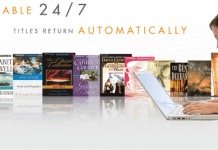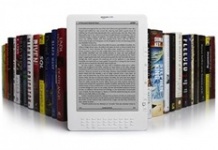
The first part of this series, The Portal Problem and the Britannica, was mentioned on TeleRead here. Now comes the second from The Scholarly Kitchen. It’s by Rick Anderson, Assoicate Dean for Scholarly Resources & Collection in the J. Willar Marriott Library at the University of Utah. Here’s an excerpt:
In my previous posting, I focused on what I believe to be dim prospects for the Encyclopedia Britannica as it transforms from a set of printed volumes into a networked online information portal. My skepticism stems from the fact that although the EB claims to offer “the breadth of the world’s knowledge,” its coverage of the world’s knowledge is actually severely limited; it offers scant information on many topics and none at all on many others. To me, the likelihood that it will find many paying customers — especially given the free availability of similar, easy-to-use, and far more comprehensive resources, such as Wikipedia — seems low.
Today, I’d like to suggest that the traditional research library faces a similar challenge. The library collection is simply a bigger version of the encyclopedia: a seemingly exhaustive but actually (in the great majority of cases) very limited information portal that invites increasingly-skeptical customers to “start your research here.”
It’s worth asking why a patron would (or should) want to start his or her research with the library collection. The answer will obviously depend on what kind of research is being done. If the patron is looking for a known item, then the question he is asking himself is Can I get quick and easy access to Document X? The library does a good job of answering that question for its patrons. Library catalogs are generally pretty effective tools for known-item searching, and academic libraries have gotten quite good at providing easy access to the items in their collections, many now going so far as to offer free on-campus delivery of books and personal electronic delivery of articles.
But known-item searching constitutes only a small part of the scholarly research process. A much larger and arguably more important part of that process is the one that involves the question Is there any such thing as a document dealing with Topic X? The traditional library is, and always has been, poorly positioned to answer that question. While the library catalog can tell you whether or not it holds a book or article on Topic X, it should be obvious that this question is more or less beside the point to a researcher, whose world is not defined by the boundaries of the library. Finding relevant documents or citations among the library’s offerings doesn’t answer the question fully (are there others?), and establishing a lack of them in the library doesn’t answer the question at all.

































